Publicaties

Regulating the transportation of small arms and light weapons
- Peter Danssaert | 23 juli 2024
The use of private transport contractors, including for the provision of transportation, freight forwarding and charter services to ship and deliver small arms, light weapons (SALW), and their parts, components and ammunition, is not adequately covered by national legal and regulatory frameworks. Inadequate regulation of SALW transport service providers, border posts and ports encourage unscrupulo

Voix du Congo: Child labor in artisanal gold mines in the Mariminza chiefdom, Watsa territory: case studies of Menze and Babarau
- RECOREN | 16 juli 2024
A publication from the series: VOIX DU CONGO. Download the report (FR) This research raises the issue of child labor in the artisanal mines in the chiefdom of Mariminza, using the examples of the Menze and Bararau quarries (Watsa territory, Haut-Uélé province). Using a qualitative approach based on several field interviews and a literature review, the study identifies the causes of child labor and

Regulating the brokering of small arms and light weapons
- Brian Wood, Peter Danssaert | 28 juni 2024
Especially since the 1990s, international transfers of SALW and ammunition have been conducted in increasingly differentiated markets. A multitude of products, buyers and suppliers around the world, including State-owned entities and large defence manufacturers, use the services of specialist intermediaries, as well as private agents and dealers. States often use brokering services for the purpose
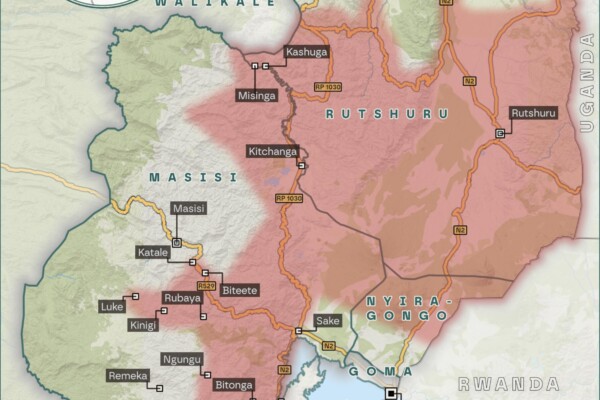
Shifting frontlines: Visualizing the evolution of the M23’s territorial influence in early 2024
- Ken Matthysen | 20 juni 2024
In early 2024, IPIS, ASSODIP, and DIIS published a report on the stakes and motivations of the “March 23 Movement” (M23), a rebellion causing serious insecurity and humanitarian suffering in the eastern Democratic Republic of Congo (DRC). The movement took up arms again in 2021, and it rapidly seized vast territories in the south-east of North Kivu province in 2022, with military support
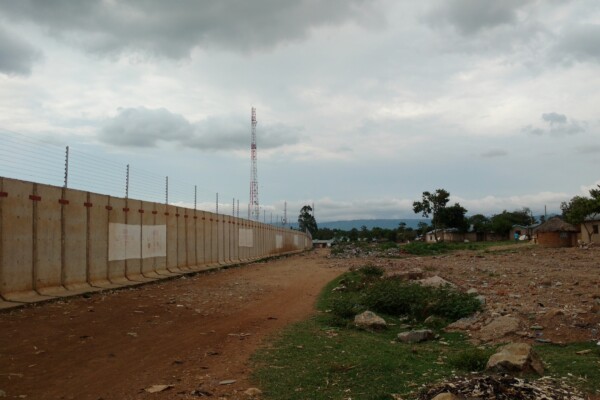
Voices from Tanzania – Social and economic impacts of land acquisition by Barrick North Mara Gold Mine in Tanzania: A case study of Komarera, Kewanja and Mjini Kati villages in Tarime District
- Himiza Social Justice | 19 juni 2024
This publication is part of IPIS’ Voices from Tanzania series and its edition on “The impact of land acquisition practices in the extractive sectors of northern Tanzania”. In their Voices from Tanzania study Himiza Social Justice assesses the socio-economic impacts of land acquisition practices by the industrial Barrick North Mara gold mine on 3 villages in Tarime district, Mara region. Downl
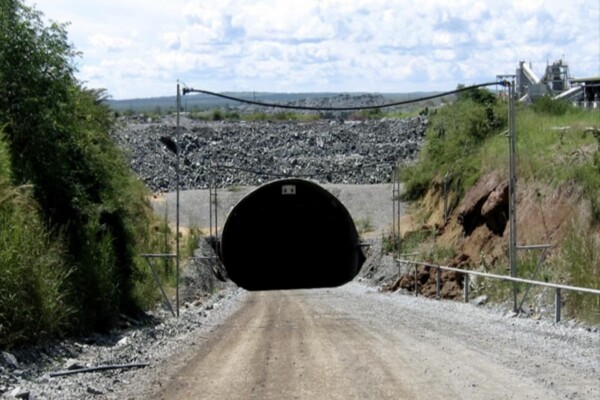
Voices from Tanzania – The social-economic impact of land acquisition practices related to Bulyanhulu Gold Mine on communities in Msalala district council, Shinyanga region
- Rafiki SDO | 17 juni 2024
This publication is part of IPIS’ Voices from Tanzania series and its edition on “The impact of land acquisition practices in the extractive sectors of northern Tanzania”. In their Voices from Tanzania study Rafiki SDO assesses the socio-economic impacts of land acquisition practices by the Bulyanhulu gold mine on 2 villages in Msalala district council, Shinyanga region. Download the report (EN) P
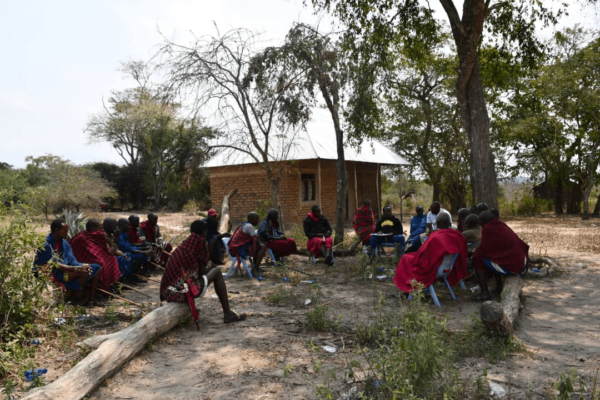
Voices from Tanzania – Small-scale producers’ awareness and involvement in the process of land acquisition for the East Africa Crude Oil Pipeline: The case study of Kilindi district in Tanga region
- HAKIARDHI | 11 juni 2024
This publication is part of IPIS’ Voices from Tanzania series and its edition on “The impact of land acquisition practices in the extractive sectors of northern Tanzania”. In their Voices from Tanzania study HAKIARDHI assesses the level of awareness and involvement of small-scale producers in the land acquisition processes for the East African Crude Oil Pipeline (EACOP) in 2 villages of Kilin
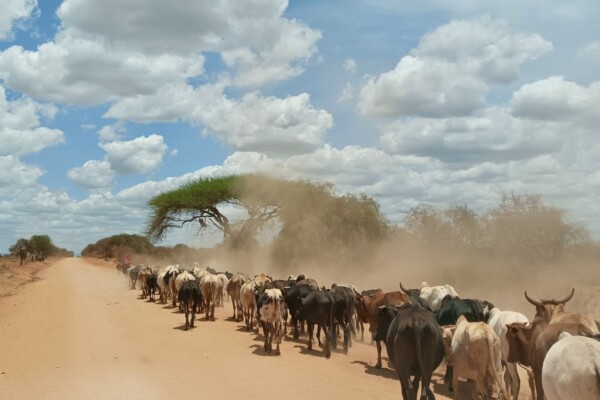
Voices from Tanzania – The impact of land acquisition processes for the East African Crude Oil Pipeline project on communities in Kiteto district, Manyara region
- KINNAPA Development Programme | 5 juni 2024
This publication is part of IPIS’ Voices from Tanzania series and its edition on “The impact of land acquisition practices in the extractive sectors of northern Tanzania”. In their Voices from Tanzania study Kinnapa Development Programme discusses the impact of land acquisition processes for the East African Crude Oil Pipeline (EACOP) project on 3 village communities in Kiteto district, Manyara re
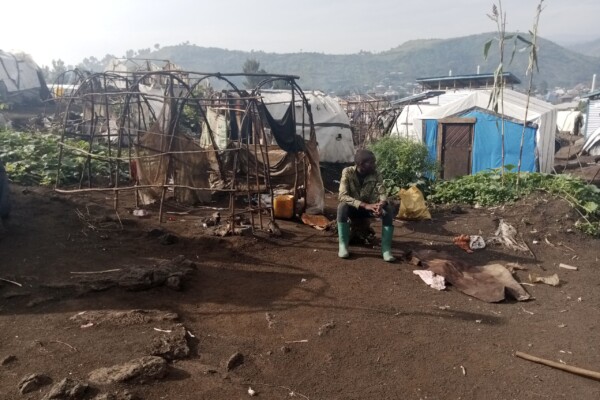
The M23 “version 2” – Local stakes, motivations, perceptions, and impacts
Since 2021, the eastern part of the Democratic Republic of Congo (DRC) has once again fallen victim to the “March 23 Movement” (M23). Supposedly defeated in 2013, the M23 took up arms again in 2021, and by 2022 had rapidly seized vast territories in the south-east of North Kivu province.

Due diligence and corporate accountability in the arms value chain
- Liliana Lizarazo-Rodriguez, Markus Fahlbusch | 27 maart 2024
Given the nature of the products commercialised by arms value chains, and their potentially devastating impacts on human dignity, states have a strict obligation to control operators in this economic sector. But is compliance with export controls sufficient for companies to assess risks to human rights? This report analyses the possibility and necessity of establishing corporate responsibility and
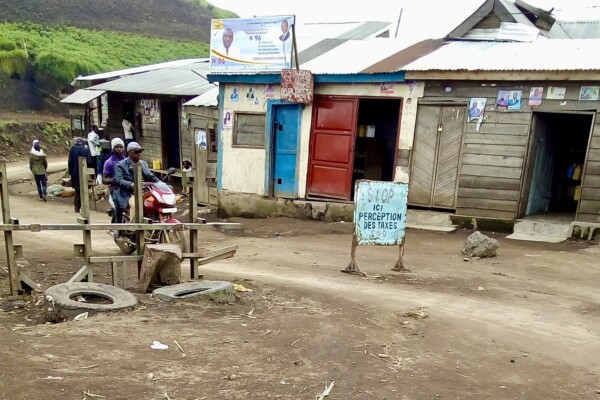
Roadblocks in Masisi and Walikale: Predation on movement in turbulent times
While minerals have centered in research on conflict financing in the Democratic Republic of the Congo, armed actors often rely on alternative sources of revenue to finance their struggles. Among these are the operation of roadblocks. In this report, produced together with ASSODIP and the Danish Institute for International Studies, IPIS studies the linkage between roadblocks and the local artisana
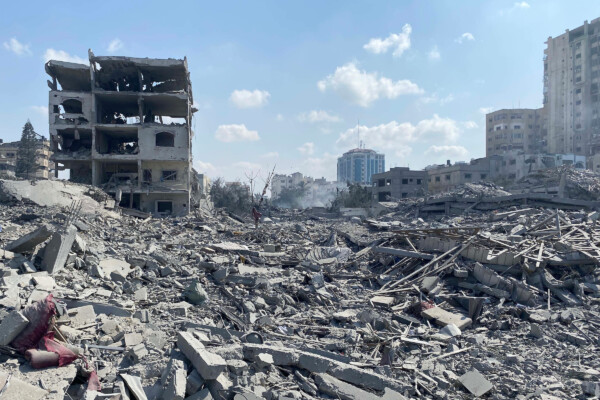
Belgische wapenexport naar Israël: De speling tussen woord en daad in het exportcontrolebeleid
- Hans Lammerant (Vredesactie) | 5 maart 2024
In dit dossier werpen Vredesactie en IPIS een kritische blik op het Belgische beleid ten aanzien van de uitvoer en doorvoer van defensiegerelateerde goederen en dualusegoederen naar Israël. De nieuwe Gaza-oorlog zet dit wapenhandelbeleid opnieuw in de schijnwerpers. De gewesten, die bevoegd zijn voor wapenhandel, claimen regelmatig uit te gaan van de hoogste standaarden. En volgens de geldende bel
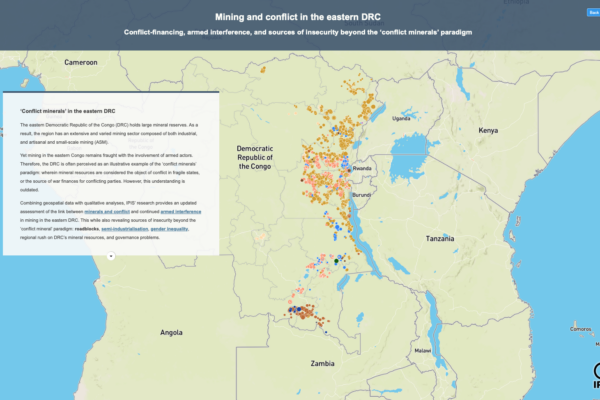
Mining and conflict in the eastern DRC: An interactive story map
- Alexeï Delanghe, Ken Matthysen | 15 februari 2024
Conflict-financing, armed interference, and sources of insecurity beyond the ‘conflict minerals’ paradigm In this story map, IPIS presents its findings on the linkage between mining and conflict-financing in the eastern Democratic Republic of the Congo (DRC). Based on a survey conducted between 2021-2023 of 829 active mining sites (representing over 132,320 artisanal miners), IPIS’ research provid

Small arms and light weapons transfer controls: Import, transit and trans-shipment
- Markus Fahlbusch, Peter Danssaert | 8 januari 2024
The objective of strengthening controls on the transfer of small arms and light weapons (SALW) is to ensure a more responsible trade, counter the illicit trade and prevent armed violence and conflict. To be effective SALW control is not limited to export control. Consignments of SALW as well as their ammunition, parts, and components, need to be controlled at all transfer points, including at the
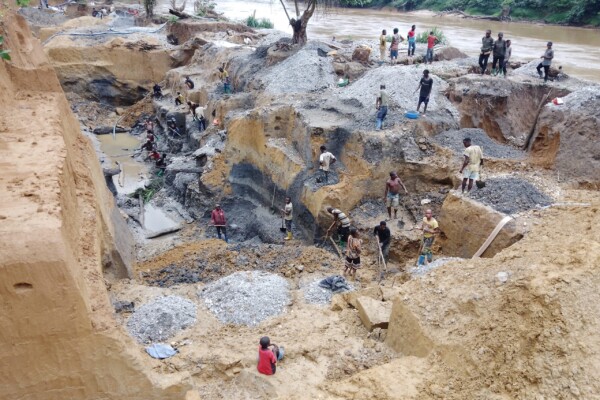
Analysis of the interactive map of artisanal mining areas in eastern Democratic Republic of Congo (2023 update)
- Jan Leysen, Ken Matthysen, Ntakobajira Zacharie Bulakali, Thomas Muller | 22 december 2023
Since 2009, IPIS has mapped and collected data at more than 2,800 Artisanal and Small-scale Mining (ASM) sites in the eastern Democratic Republic of the Congo (DRC). In this report, IPIS provides its 2023 update of the state of ASM in the eastern DRC, based on data from over 829 ASM sites in the eastern DRC between 2021-2023. The study analyses linkages between mining, conflict, and insecurity in
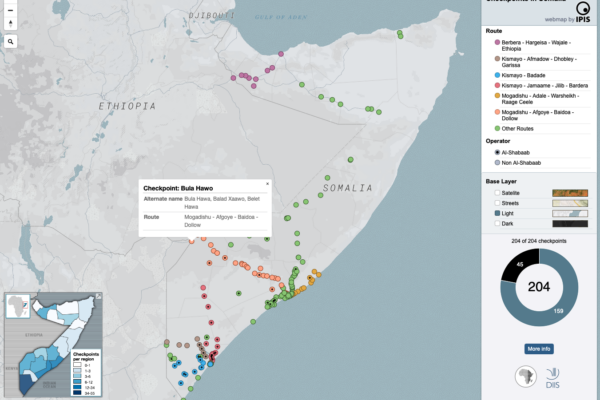
Mapping the political economy of checkpoints in Somalia
- IPIS | 20 december 2023
The maps inform users on the locations of roadblocks across Somalia, the distribution of violence at checkpoints as well as the density of checkpoints per administrative region. Different maps also identify varying characteristics of the roadblocks, including their operator, location on a primary/secondary road and the amount paid at the checkpoint as toll.

Increasing awareness of policy reforms on gender equality issues in artisanal and small-scale mining in eastern DRC: Case study of the Numbi, Nzibira and Nyabibwe sites
- Marie-Rose Bashwira Nyenyezi, Michaël Bahigira Akilimali | 13 december 2023
The mineral resources of the eastern Democratic Republic of the Congo’s (DRC) provide an important source of employment for both men and women involved in artisanal and small-scaling mining (ASM). Yet opportunities are not equal for men and women. Based on a series of interviews with various ASM stakeholders at the mines of Numbi, Nzibira and Nybibwe in the province of South Kivu, this

Due diligence and the risk of disengagement: Experiences from the mineral sector and a way forward for the CSDDD
- Boukje Theeuwes (Solidaridad), Catarina Vieira (Solidaridad), Lotte Hoex | 11 december 2023
The Corporate Sustainability Due Diligence Directive (CSDDD) is currently being negotiated by the European institutions. This long-awaited piece of legislation is expected to be finalised by early 2024. With the aim of holding companies operating in the EU accountable for the adverse human rights and environmental impacts of their operations and the impacts across their value chains, the Directive
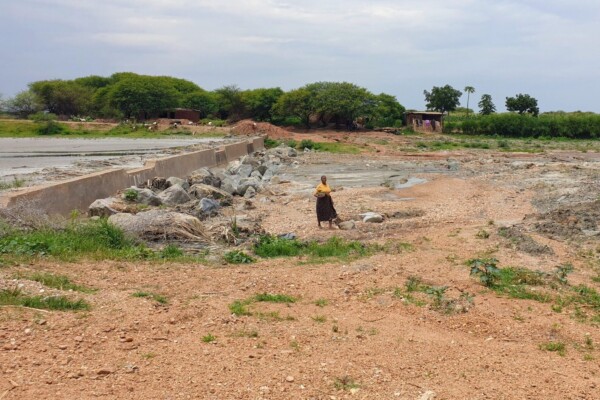
Petra Diamonds’ attempts to come clean with its tarnished past in Tanzania
- IPIS | 9 november 2023
Challenges in securing access to remedy and restoring community relations after serious human rights abuse at the Williamson diamond mine This report assesses the efforts by Petra Diamonds to restore community relations and remediate the legacy of serious human rights abuse at its Williamson diamond mine in Tanzania. Download the report The Williamson Diamonds mine, adjacent villages a
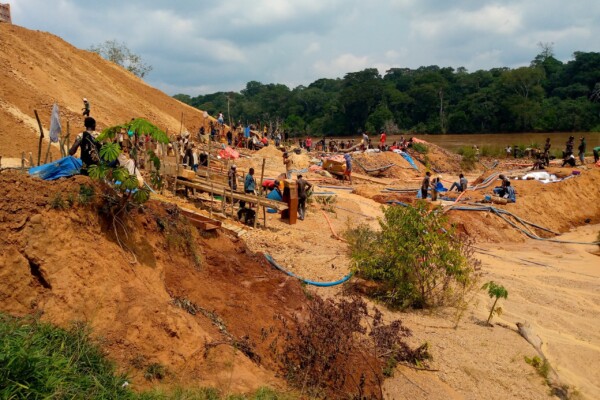
Mapping of artisanal mining sites in western Mambasa, Ituri Province, Democratic Republic of the Congo
- Guillaume de Brier | 27 oktober 2023
The western part of Mambasa territory, in Ituri province, has been overlooked by national authorities and international partners. This despite major expansions of artisanal and small-scale gold mining (ASM) operations, including in the Okapi Wildlife Reserve (OWR). These mining operations have caused tensions between native inhabitants, miners, armed actors, officials and conservationists. Se

